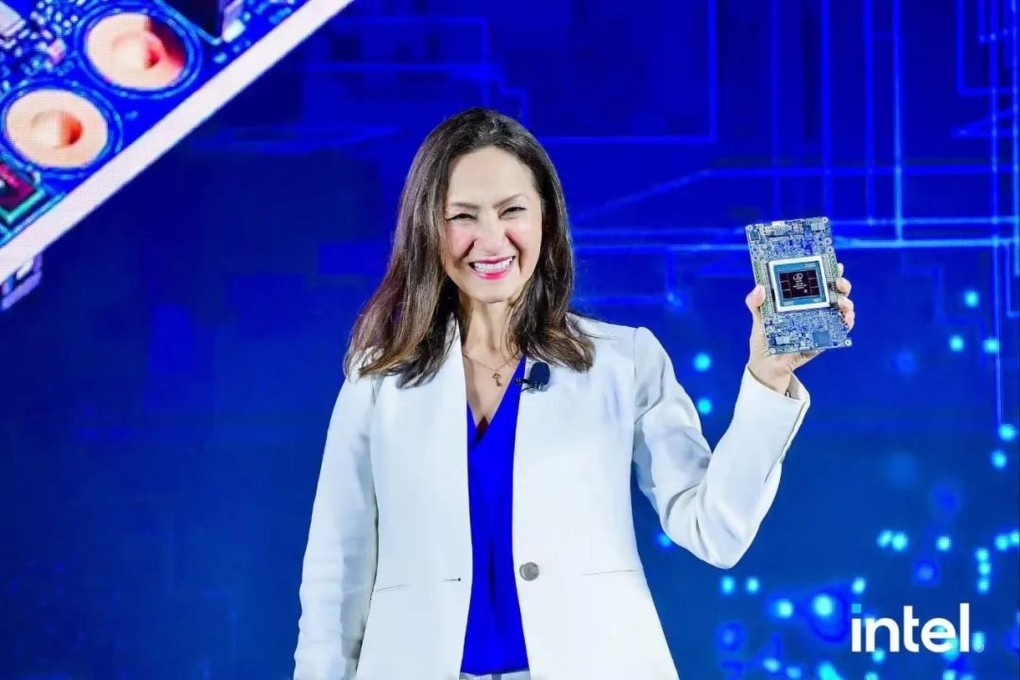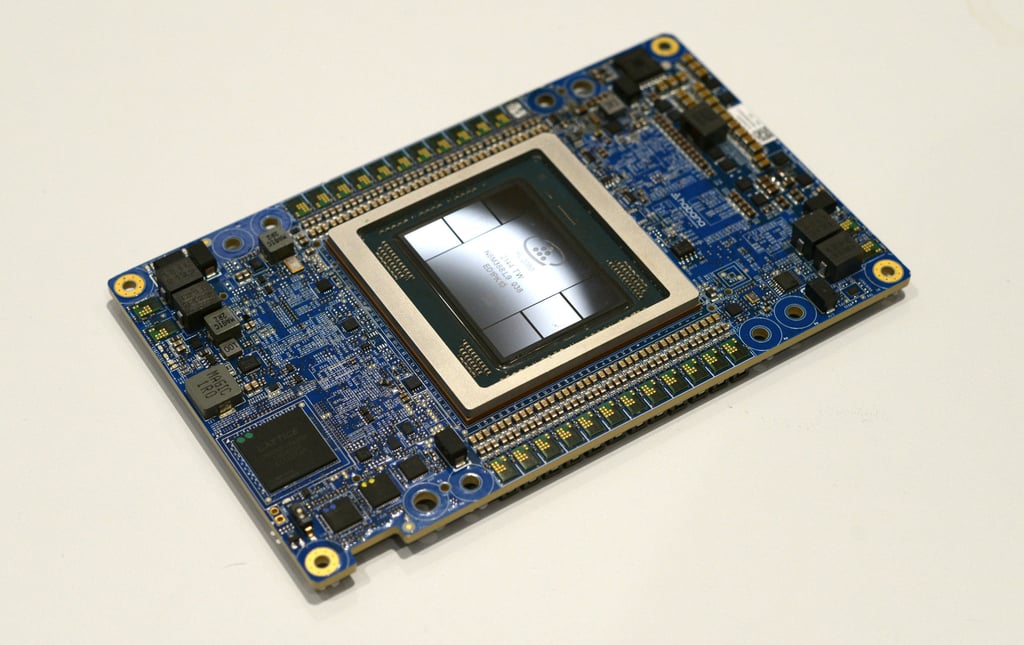Advertisement
Tech war: Intel and Nvidia continue to push purpose-built chips for training AI systems in China amid US export restrictions
- Intel said its Gaudi2 processor, which is not subject to US restrictions, is the company’s answer to Nvidia’s A100 GPU, used for training AI systems
- It follows efforts by Nvidia earlier this year to push modified versions of the firm’s US-restricted A100 and H100 GPUs in China
Reading Time:2 minutes
Why you can trust SCMP
18

Ben Jiangin Beijing
Semiconductor giant Intel Corp has brought its latest processor for artificial intelligence (AI) deep-learning applications to mainland China, where massive demand for US-restricted advanced chips has created a major under-the-counter trade for smuggled graphics processing units (GPUs) from Nvidia Corp.
At a press conference in Beijing on Tuesday, Intel executives presented the company’s Gaudi2 processor, a device that is not subject to US export restrictions, as its answer to Nvidia’s premium A100 GPU, which is widely used for training AI systems.
The latest initiative by Intel – which generated 27 per cent of its total 2022 revenue in China, according to its latest annual report – underscores the continued importance of the vast mainland market to US semiconductor technology providers, despite Washington’s export controls.
Advertisement
It follows efforts by Nvidia earlier this year to push modified versions of its flagship A100 and H100 GPUs in China to comply with US restrictions and keep the supply lines open for its customers on the mainland, where new AI development projects have flourished to create services similar to OpenAI’s ChatGPT.

In August last year, the US Department of Commerce imposed a ban on Nvidia and Advanced Micro Devices (AMD) from selling some advanced chips to China. Nvidia was instructed to stop selling its A100 and H100 GPUs, while AMD was prevented from exporting its MI250 chips to the mainland.
Advertisement
That left China’s AI sector scrambling to buy limited supplies of advanced chips from Nvidia, which has a near monopoly on GPUs used to train AI systems.
Advertisement
Select Voice
Choose your listening speed
Get through articles 2x faster
1.25x
250 WPM
Slow
Average
Fast
1.25x